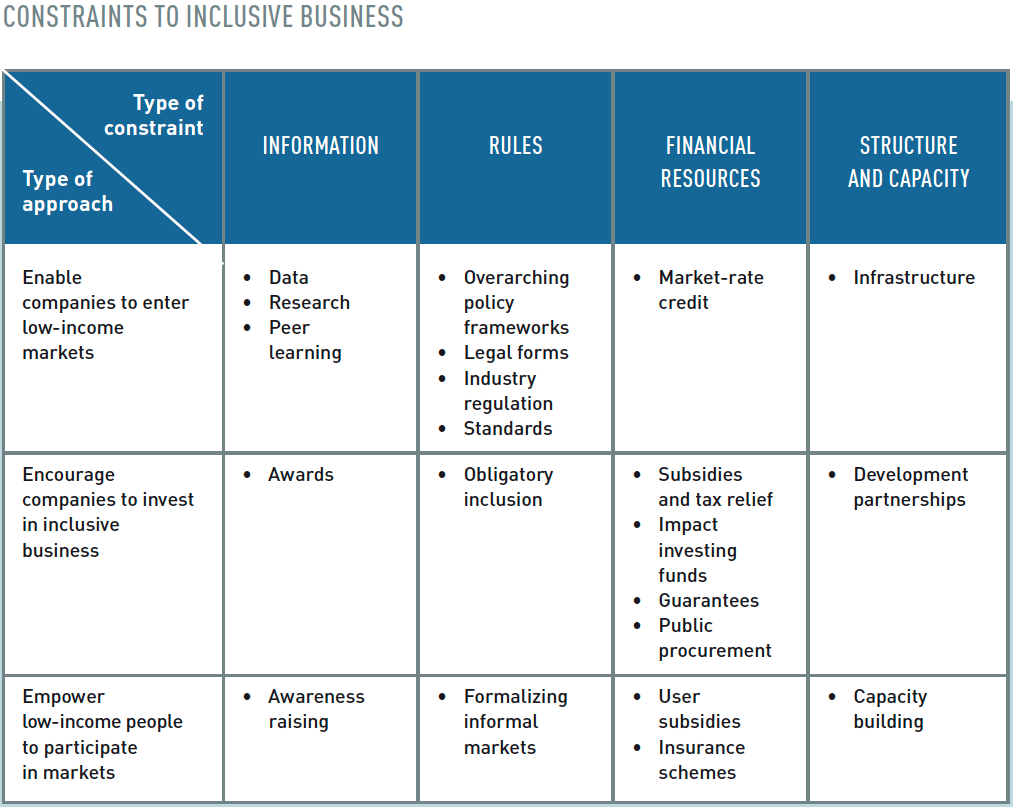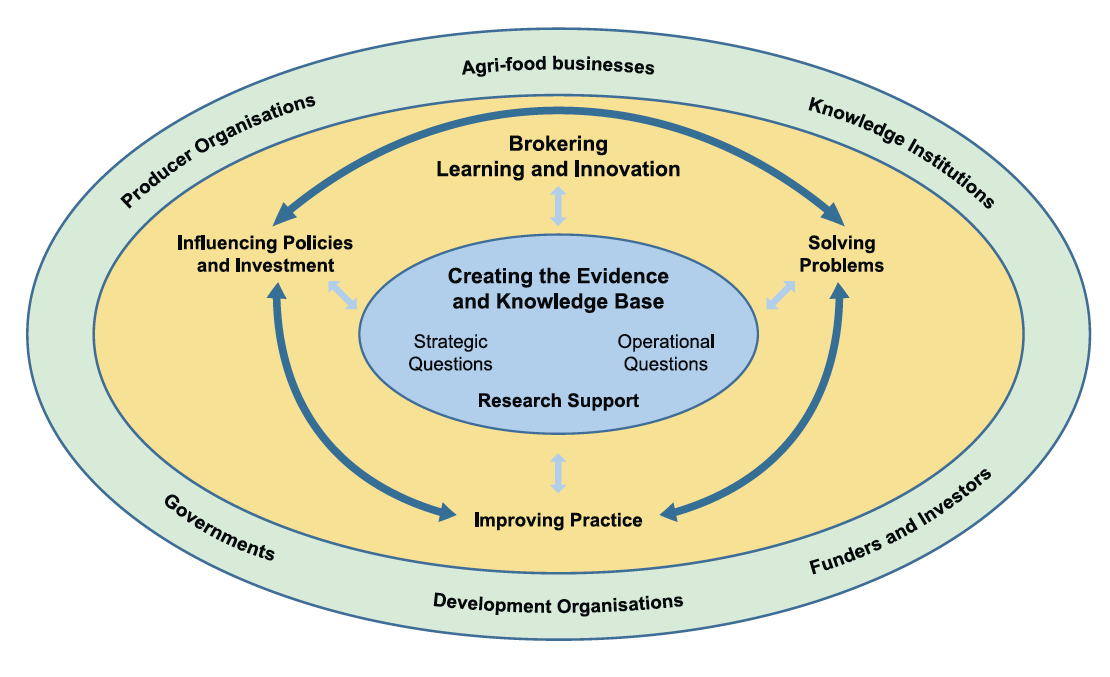Editor’s Choice, April 2017: An overview of what’s happening with inclusive agribusiness, what’s missing and specific roles donors could play.
This month we asked Joost Guijt, Advisor at the Wageningen Centre for Development Innovation and co-lead for Seas of Change, to take on the task of reviewing this month's Editor's Choice, Jim Woodhill's "Inclusive Agribusiness: The State of play".
The highlighted document gives context to the fascinating stories of what all kinds of people and organisations are working on in relation to inclusive agribusiness. Jim wrote “Inclusive Agribusiness: The State of play” as a background working paper for the Global Donor Platform for Rural Development. What I appreciated is that the paper not only gives an overview of who is doing what, it also analyses what’s missing and what is needed to fill some critical gaps.
What’s happening
“Inclusiveness” is rapidly growing to become a new all-encompassing term. Hardly a policy statement or business proposal comes out without emphasising that whatever is planned will, of course, need to be inclusive. While valuable to draw attention to the need to be deliberate about who is included in what way, ‘inclusiveness’ is rapidly growing to be a bucket that is so large that everything can be justified as being inclusive without really changing anything at all.
This paper starts with a useful discussion of what makes inclusive business different from business as usual. And what makes inclusive agribusiness different from other kinds of inclusive business. Aspects such as the “high levels of uncertainty and risk due to dependence on weather..”, very “dispersed supply base” and “ product perishability” reminded me that inclusive agribusiness models and support needs to be specific to that sector. Table 2 gives a insightful overview of key constraints facing agribusiness. When I allowed it to sink it, it helped me realise that inclusive agribusiness is much more than just setting up enterprises.

Through these lenses the author builds up a mind map that makes it clear that all kinds of actors, from individual companies to multi-donor initiatives, are working at all kinds of levels to make agribusiness generate greater public value along with more profitable or stable business value. I didn’t see substantiation for the estimate that this represents anywhere up to 3$-4 billion of investments, but can imagine it is plausible, and therefore significant.
What’s missing
Despite the array of activities, I liked that the paper doesn’t get blinded by all that’s going on, to conclude that all is well. A key reason for choosing this month’s report is that the author highlights critical gaps in current efforts. Seven major issues are drawn out, which if addressed, are equally important opportunities. The one I think underpins many of the others is that actually there is a very poor evidence base for what value is created for whom and at what cost and effort. And there is very little synthesis across the many individual studies and reports. Which means we can’t really demonstrate “that partnering with the private sector is an effective way to tackle poverty, sustainability and inequality”. Nor can we show business that it’s worth making inclusive agribusiness normal business practice, and worth investing in necessary partnerships. If we don’t provide clearer evidence of individual and collective impact, then the willingness to invest in an essential rethink of how we do business will slow and stop.
Other key issues the author unpacks include the need to understand the anticipated public as well as private value intended to come out of greater inclusion; specific enabling policy; mobilising responsible investment and ultimately thinking about food system transformations.
What to focus on, in particular donors
The author emphasises the need to improve the way we learn about and from the initiatives undertaken. A learning system is sketched out which, once allowed to sink in, does provide useful guidance for those actively involved in this domain and key issues where to prioritise future work. The implications are, of course, that investing in new initiatives needs to be paired with serious investment in trying to extract lessons and feed that back into decision making at the pace with which change really happens. Not at typical academic or donor pace.

The final chapter makes the valuable connection with the (potential) role of donors. The reality, of course, is that almost all inclusive agribusiness initiatives have some kind of donor support because of the public goods goals. While resources are limited compared to what business can mobilise, they are essential. This working paper makes a number of pertinent recommendations about how donor support can become even more catalytic in mainstreaming inclusive agribusiness. One aspect of that is investing in the evidence gathering, synthesis and sharing needed to inform practitioners properly. The other is to use the collaborative space of the Donor Platform to push for more specific policy that stimulates the incentives for more inclusive agribusiness.
The working paper ends with an “indicative directory of donor/agency strategies and initiatives” as well as details of the who’s doing what mind map. If you are wanting to start something and are looking who to connect with, this is a good place to look. Why reinvent the wheel when there are so many already rolling?
- This blog is part of a series on what’s new in inclusive agribusiness from April 2017. Hear from more contributors in part one of the series- digging into the details of inclusive business programmes around the world. In part two contributors share how long-standing perspectives on cooperative, corporate strategies, value chain partnerships, market system change, rural livelihoods support, financing, and innovation adoption are beginning to blend, and why.
- Read more on key topics in inclusive agribusiness in the series of six theme papers.
- Access over 450 resources on inclusive agribusiness on SearchInclusiveBusiness.org